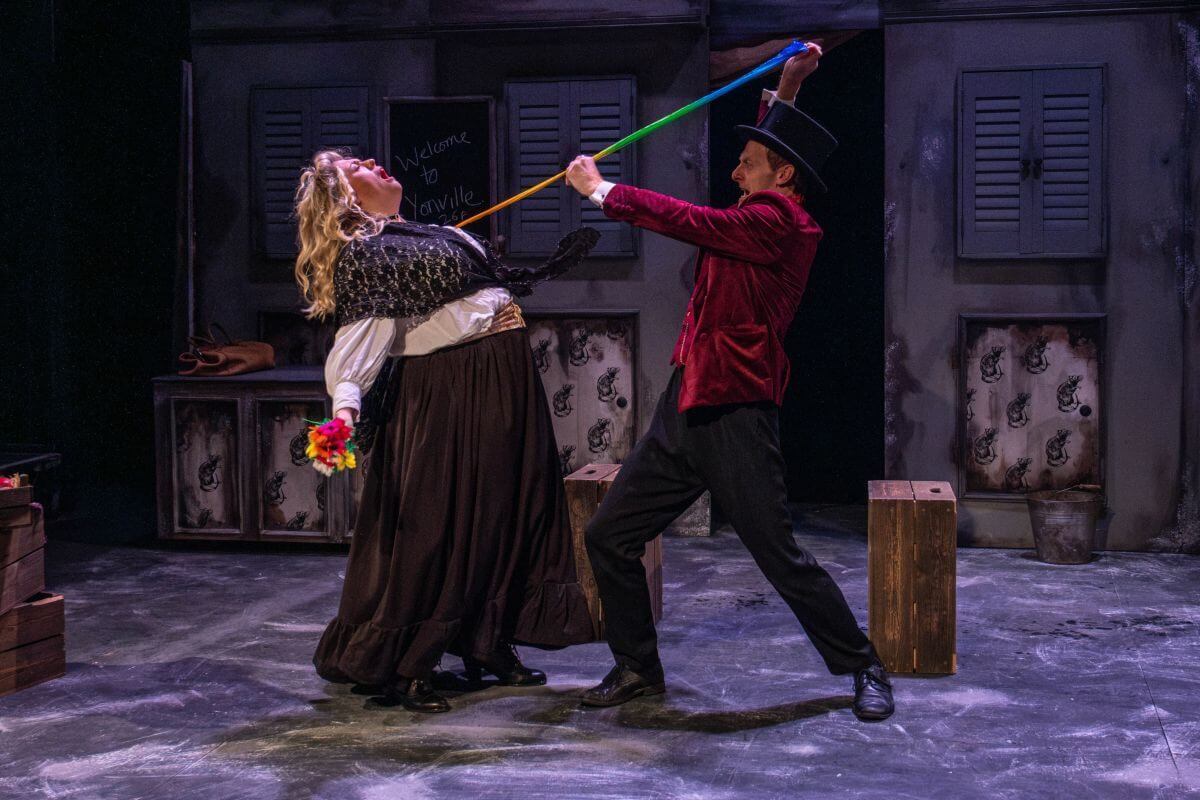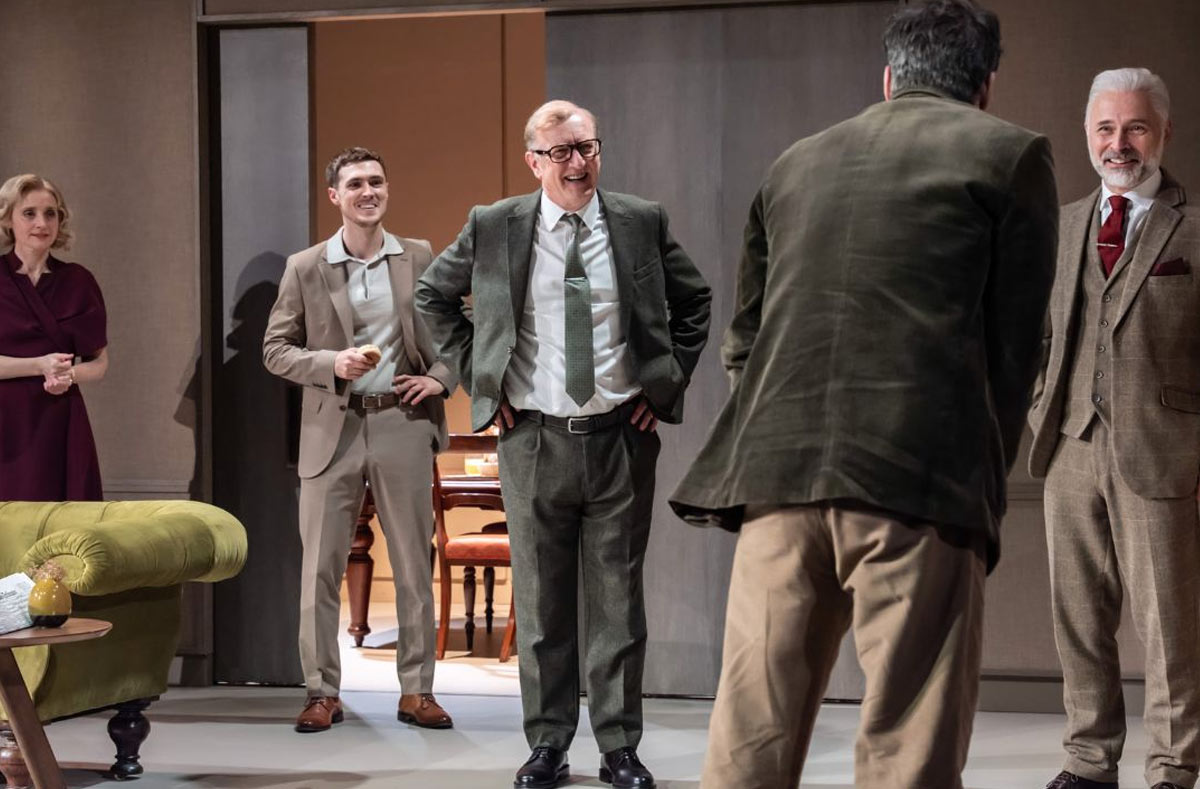It’s an unsentimental, unabashed tragedy. You wouldn’t expect to see it retold as a comedy.
And yet, The Massive Tragedy of Madame Bovary, John Nicholson’s adaptation - described in the programme as ‘lovingly derailed’ - feels less like a straightforward comedy and more like a comedy disguised as a tragedy wearing the trappings of a comedy while insisting it’s a tragedy… and the end result is both hilarious and moving.
The story was retold through the framing device of a couple of wily rat-catchers who attempt to intervene to prevent the novel’s tragic conclusion, and the production made no secret of its bold reframing of the narrative. The actors gleefully shattered the fourth wall at various intervals to address the audience, comment on their creative decisions, and break character to debate how best to retell the familiar story. In doing so, they poked fun at the story, at themselves, and at the audience (we were asked how many of us had read the book, and those who sheepishly raised their hands were accused of lying).
The humour ranged from slapstick physical comedy to outlandish musical cues (Hitchcockian chords chimed whenever arsenic was mentioned) to bawdy wordplay. There was an overall sense of pantomime, with actors manipulating the minimalist set in creative ways. The scene where Emma and Rudolphe simulated sex through a series of exaggerated magic tricks involving ribbons and flowers was such an audience favourite that the actor playing Rudolphe insisted on performing it again.
The cast consisted of a company of four actors frantically cycling through the various characters with gleeful speed and tongue in cheek obviousness as they switched costumes and disguised their voices. Each one shone in different ways. Georgia Nicholson played Emma Bovary with the melodrama of a nineteenth century heroine thrust into a comedic setting against her will, and Darren Seed was earnestly endearing and buffoonish as her hapless husband Charles. Ben Kernow stole the show as Emma’s various unfortunate lovers, from the poetic Leon to the outrageously rakish Rudolphe. But Stephen Cavanagh was secretly my favourite for the sheer number of minor characters he juggled, lending each persona a uniquely comedic twist with his facial expressions and body language. Above all, the four actors played off each other with the easy charm and fluidity of a group of friends having a laugh.
As Nicholson notes in the programme notes, tragedy and comedy go hand in hand, and a story like Madame Bovary was ripe for investigating the way the two intersect. Amusingly, Flaubert, a perfectionism who famously relied on realism and precision of language and storytelling, might have been taken aback by the meandering, chaotic adaptation of his work. Then again, considering he called Madame Bovary ‘a book about nothing’, I think it would’ve gotten an appreciative chuckle out of him.
The Massive Tragedy of Madame Bovary will be playing at Southwark Playhouse until January 11th 2025.

 The Massive Tragedy of Madame Bovary at Southwark Playhouse. Photo Tanya Pabaru.
The Massive Tragedy of Madame Bovary at Southwark Playhouse. Photo Tanya Pabaru.


